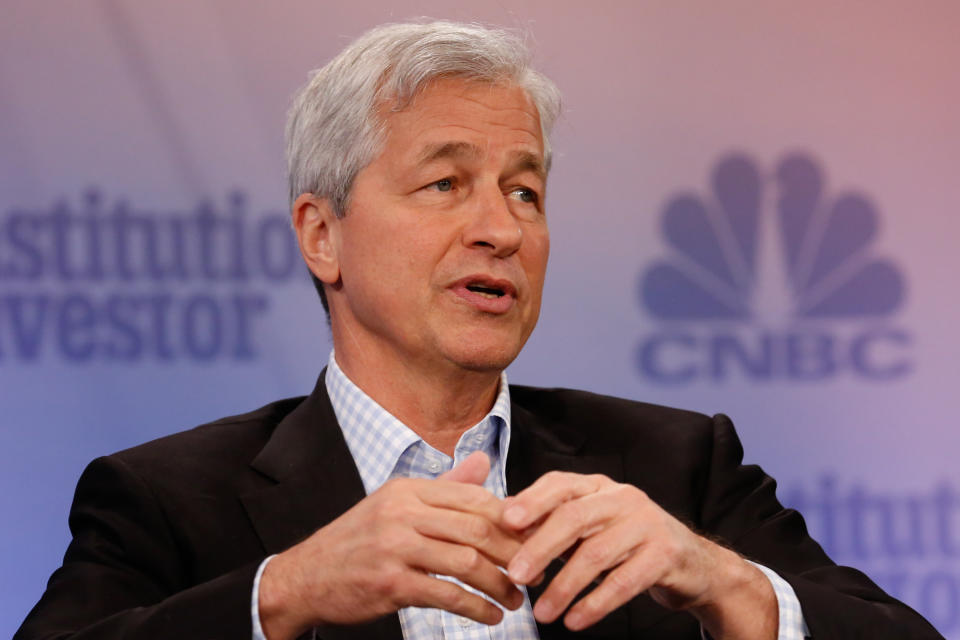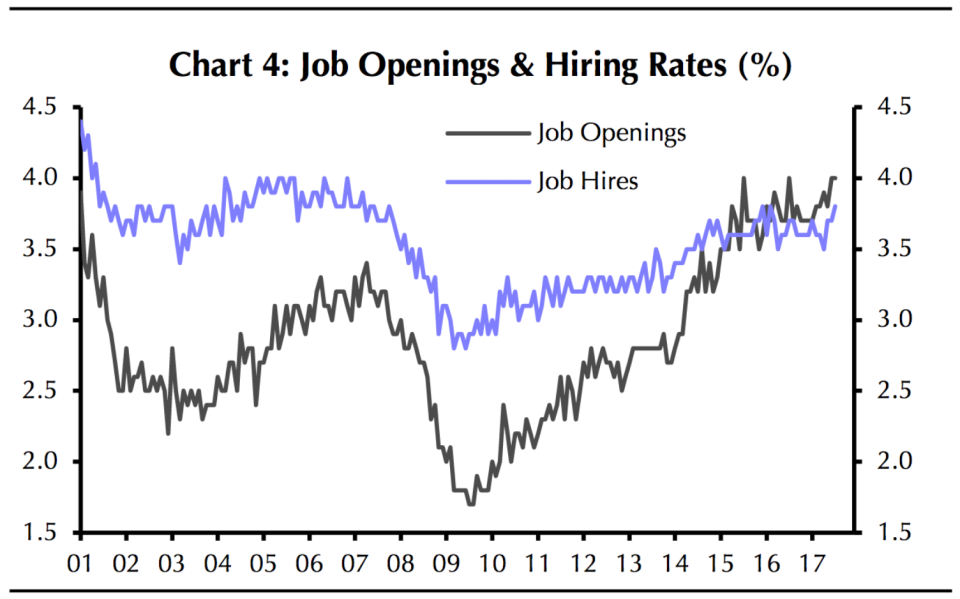What you need to know in markets on Wednesday
Well, now it’s over.
Apple’s (AAPL) big event to announce its new line of iPhones has come and gone, and the company confirmed it will begin selling the iPhone X in November, with a starting price of $999.
Shares of the company eventually finished the day down about 0.4%, falling roughly 2% from peak to trough. As they say: buy the rumor, sell the news.
Overall, markets were higher but not by much on Tuesday, though another close in the green made it a second-straight record high for the benchmark S&P 500.

On Wednesday, the calendar will be a bit lighter, with only the monthly report on producer prices expected in the morning and the corporate calendar certainly not as busy as what we saw Tuesday.
In addition to Apple’s announcement, JP Morgan (JPM) CEO Jamie Dimon also made waves on Tuesday, saying at an investment conference that Bitcoin’s (BTC) current run higher is “worse than tulip bulbs,” a reference to the tulip mania of the 1600s. In unrelated Bitcoin news, Bank of America Merrill Lynch’s latest fund manager survey indicated that going long Bitcoin is seen as the market’s most crowded trade right now.
Speaking at CNBC’s Delivering Alpha conference later on Tuesday, Dimon also spoke to his succession at JP Morgan — he has been CEO for 12 years now — and said that the next CEO of the firm currently works at JP Morgan.

At the same conference on Tuesday morning, Treasury Secretary Steven Mnuchin spoke a bit about the Trump administration’s current progress on tax reform, with the biggest news emerging from his comments being the revelation that tax cuts could be back-dated to the beginning of 2017.
Jobs are everywhere
On Tuesday, the Bureau of Labor Statistics released its latest job openings and labor turnover survey, or JOLTS report, which showed that in July we saw a fresh record number of jobs open in the U.S.
In July, 6.17 million jobs were open in the U.S., a record for the series which dates back to 2001.
Following this report, Andrew Hunter, an economist at Capital Economics, said the number of jobs open means that even if the Phillips curve isn’t as strong as it once was — that is, the relationship between the unemployment rate and wages, which are expected to rise as unemployment fall — “more firms chasing fewer workers will put wage growth on an upward trend again before long.”

Over the last several years, the unemployment rate has continued to press down to new post-crisis lows, with the current 4.3% level standing as the lowest in over a decade.
As this rate has come down many economists expected that earnings would rise and thus lead to inflation. Wage growth hasn’t been terrible, but it’s not accelerating and inflation readings have not picked up.
But the JOLTS report has perhaps been the strongest sign that while some economic data have lagged expectations there is a strong demand for labor out in the economy.
The NFIB’s latest reading on small business optimism, also out Tuesday, indicated that labor continues to be a primary concern for businesses everywhere with 19% of firms identifying it as their biggest problem, trailing only the 20% who saw taxes as their main issue.
So while the labor market has for some time been presenting economists with a puzzle relative to what the textbook might say, the thinking still seems to be that eventually, wages must rise. Eventually.
—
Myles Udland is a writer at Yahoo Finance. Follow him on Twitter @MylesUdland
Read more from Myles here:

 Yahoo Finance
Yahoo Finance 
